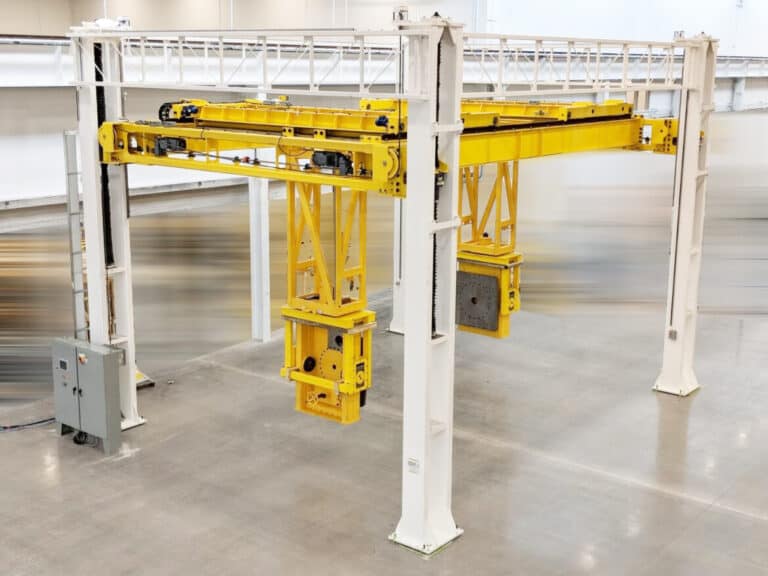Paperwork tips is essential in freight shipping
Understanding the Inclusions of moving and Freight Forwarding on the planet of Residential and Worldwide Delivery
Guiding through the intricacies of moving and Freight forwarding can be tough. Both processes entail distinct procedures and requirements that are critical for effective transportation. Understanding the differences in logistics, documents, and risk monitoring is important for organizations and people alike. This knowledge can substantially affect the effectiveness and safety and security of shipments. Lots of are unaware of the specific components that influence the general experience and outcomes. What elements should one consider to assure a smooth transition?
The Essentials of moving and Freight Forwarding
moving and Freight forwarding are basic parts of the worldwide logistics market. They facilitate the transfer of goods and individual valuables across residential and global borders. moving primarily entails the relocation of families or individuals, incorporating domestic and business needs. It usually consists of packing, filling, transferring, and unpacking items at the location. In comparison, Freight forwarding is concentrated on the delivery of products, commonly in mass, utilizing numerous transportation settings, such as land.freight, air, or sea forwarders work as intermediaries, collaborating logistics to ensure timely delivery while steering through facility regulations and customizeds treatments. Both processes require cautious preparation, company, and communication to ensure efficiency and minimize disturbances. Understanding these principles is crucial for anybody associated with logistics, as they lay the foundation for advanced facets of shipping and transport administration.
Trick Elements of Freight Forwarding Solutions
Freight forwarding services include numerous crucial elements that ensure smooth transport of products. Trick responsibilities of Freight forwarders include taking care of logistics, working with deliveries, and taking care of personalizeds clearance. In addition, comprehending essential shipping documentation is vital for compliance and reliable movement of freight.
Freight Forwarder Responsibilities
A reliable Freight forwarder plays an important function in working with the transportation of items, making sure that shipments are taken care of effectively and in conformity with laws. Their duties encompass different key jobs, including choosing excellent transportation courses, negotiating Freight prices, and managing logistics. They act as intermediaries in between shippers and service providers, making certain that freight is effectively packaged and classified for risk-free transit. Furthermore, Freight forwarders track deliveries, supplying updates to clients regarding the condition and anticipated distribution times. They additionally assess and take care of dangers connected with transportation, advising insurance coverage alternatives as needed. By helping with communication and paperwork, Freight forwarders enhance the shipping process, reducing potential hold-ups and enhancing general supply chain performance.
Shipping Paperwork Basics

Understanding Customizeds Clearance and Documentation
Precise paperwork is vital in the personalizeds clearance process, as it assures compliance with different laws. An overview of customizeds policies highlights the complexities faced by shippers and Freight forwarders. Common clearance difficulties can greatly impact shipment timelines and prices, making understanding this element vital for efficient logistics.
Value of Accurate Documentation
Guiding via the complexities of international shipping needs a keen understanding of customizeds clearance and the crucial role of documents. Precise documentation is essential for making sure that deliveries abide by policies and reach their locations immediately. Properly prepared documents, consisting of expenses of lading, commercial invoices, and packing listings, help with smooth communications with customs authorities. Errors can cause shipment delays, fines, and even confiscation of goods. Moreover, thorough documents aids in monitoring shipments and dealing with disagreements. Organizations involved in moving and Freight forwarding must prioritize thorough paperwork techniques to navigate the complex landscape of international shipping properly. This diligence not just streamlines procedures yet likewise boosts consumer satisfaction by ensuring prompt distribution.
Custom-mades Rules Overview
Guiding custom-mades laws is a crucial facet of international profession that directly impacts the success of moving and Freight forwarding operations. Efficient personalizeds clearance calls for an understanding of various policies, including tariffs, obligations, and import/export limitations. Accurate paperwork is crucial, as it ensures conformity with lawful demands and assists in the reliable activity of items throughout boundaries. Key papers usually consist of business billings, packaging listings, and bills of lading, which offer in-depth info regarding the shipment. In addition, personalizeds brokers play a critical duty in guiding complex laws, functioning as intermediaries in between custom-mades and carriers authorities. By maintaining thorough understanding of customs processes, organizations can significantly lower delays and minimize prices related to worldwide shipping.
Typical Clearance Challenges
Numerous obstacles can develop throughout the personalizeds clearance procedure, often complicating the motion of items throughout borders. One substantial concern is not enough documentation, which can lead to hold-ups and charges. Exporters and importers need to guarantee all called for documentation, such as invoices, packaging lists, and certifications of beginning, is exact and complete. In addition, discrepancies in assessment can activate analysis from custom-mades authorities, resulting in extra tasks or examinations. Language barriers might likewise posture difficulties, as miscommunication can bring about misunderstandings regarding policies. Changes in custom-mades laws can produce complication, demanding constant watchfulness by shippers. Eventually, conquering these clearance tests calls for comprehensive preparation and a clear understanding of custom-mades needs to promote smooth worldwide purchases.
Product Packaging and Labeling Requirements
Although commonly forgotten, packaging and labeling demands play a necessary function in the delivery procedure, guaranteeing that goods are shielded and quickly recognizable throughout their trip. Correct product packaging safeguards products from damage throughout transportation, while likewise promoting reliable handling and storage space. Utilizing suitable products, such as bubble cover, foam, or sturdy boxes, can protect against breakage and loss.Labeling is equally crucial. Clear and precise labels share vital information, including the destination, managing instructions, and contents. Tags should abide by laws certain to international and residential shipping, which may consist of harmful materials recognition or custom-mades declarations.Moreover, standardized labeling techniques simplify the monitoring process and improve general logistics efficiency. By sticking to packaging and labeling demands, businesses reduce the threat of hold-ups, damage, or misdelivery. Ultimately, these methods add considerably to the success of moving and Freight forwarding procedures, making sure a seamless shipping experience for all events involved
Tracking Deliveries: Importance and Methods
Effective product packaging and labeling established the structure for effective delivery monitoring, however tracking deliveries is similarly necessary in the delivery process. Shipment tracking provides real-time visibility, which helps companies and customers check the progress of their products. This transparency boosts consumer satisfaction, because customers can remain educated concerning delivery timelines and any type of prospective delays.Several approaches help with effective tracking. Barcode scanning is a typical method, using distinct identifiers to monitor plans throughout their trip. Furthermore, GPS innovation makes it possible for exact location monitoring, enabling timely updates and boosted logistics monitoring. Numerous shipping companies currently provide electronic systems and mobile applications that offer users with very easy accessibility to tracking information.The relevance of shipment tracking can not be overstated; it minimizes the threat of shed or damaged items, enhances operational performance, and cultivates trust fund in between recipients and shippers. Integrating reliable tracking techniques is crucial for successful residential and international delivery operations.
Insurance Options for Your Product
Safeguarding insurance for products en route is an important consideration for people and organizations alike. Insurance choices differ based upon the sort of shipment, value of products, and particular threats included. Common kinds consist of copyright responsibility, which covers loss or damage while in transit, and full-value insurance coverage, providing extensive coverage for the complete value of the goods.Shippers may also consider aquatic insurance coverage for global shipments, shielding against threats related to sea transportation. It is vital to assess the certain demands of the shipment and assess the conditions of any kind of policy.Furthermore, recognizing exemptions and constraints is essential to stay clear of possible voids in insurance coverage. Carriers should engage with insurance coverage specialists to check out customized solutions that fit their distinct circumstances. Inevitably, spending in the best insurance policy can mitigate financial threats and top moving companies give comfort during the shipping process.
Choosing the Right moving and Freight Forwarding Service
When choosing a moving and Freight forwarding service, it is crucial for services and people to very carefully evaluate their details needs and priorities. Factors such as the quantity of items, destination, and timeline play a significant duty in this decision-making procedure. Investigating various companies is advisable; comparing their solutions, pricing, and consumer testimonials can disclose useful insights.Additionally, it is needed to take into consideration the experience and competence of the solution supplier in handling specific kinds of freight, specifically for global deliveries that may entail custom-mades clearance. Openness in rates, including any kind of concealed costs, must likewise be scrutinized.Furthermore, examining the level of consumer assistance offered is essential, as timely communication can reduce concerns throughout transit (international moving). Verifying the accessibility of insurance options ensures that goods are secured throughout the shipping process. By taking these services, this actions and individuals can make enlightened choices that straighten with their logistics requirements
Often Asked Inquiries
What Sorts Of Goods Can Be Shipped Globally?

Just How Do Delivery Expenses Vary In Between Various Providers?
Shipping prices differ significantly in between providers due to variables such as service rate, freight type, range, and extra solutions supplied. Each service provider's rates design shows these variables, influencing total shipping costs for clients.
Can I Ship Hazardous Products or Perishables?
Shipping harmful products and perishables is subject to stringent laws. Carriers frequently require particular product packaging, labeling, and documentation. Carriers must ensure conformity with international and regional regulations to avoid charges and guarantee risk-free transport.
What Should I Do if My Delivery Is Delayed?
When encountered with a delivery delay, one must initially speak to the provider for updates. Evaluate any notifications got, examine different solutions, and maintain all events notified regarding the scenario to decrease disruptions.
Are There Weight Boundary for Delivery Containers?
Weight limits for shipping containers vary depending on elements like container dimension and delivery guidelines. Usually, conventional containers have an optimum gross weight of around 30,000 to 32,000 kgs to ensure risk-free transport and handling. In comparison, Freight forwarding is concentrated on the shipment of goods, often in bulk, using different transportation modes, such as air, sea, or land.Freight forwarders act as intermediaries, working with logistics to assure prompt shipment while steering with facility guidelines and customs treatments. Trick obligations of Freight forwarders include handling logistics, coordinating shipments, and handling personalizeds clearance. A reliable Freight forwarder plays a necessary function in collaborating the transport corporate moving companies of products, guaranteeing that deliveries are managed successfully and in conformity with policies. Effective product packaging and labeling set the foundation for successful shipment management, yet tracking shipments is equally crucial in the delivery process. Several delivery firms now supply digital systems and mobile applications that provide customers with easy access to tracking information.The relevance of shipment monitoring can not be overemphasized; it decreases the threat of lost or damaged products, boosts operational effectiveness, and cultivates trust fund between receivers and carriers.